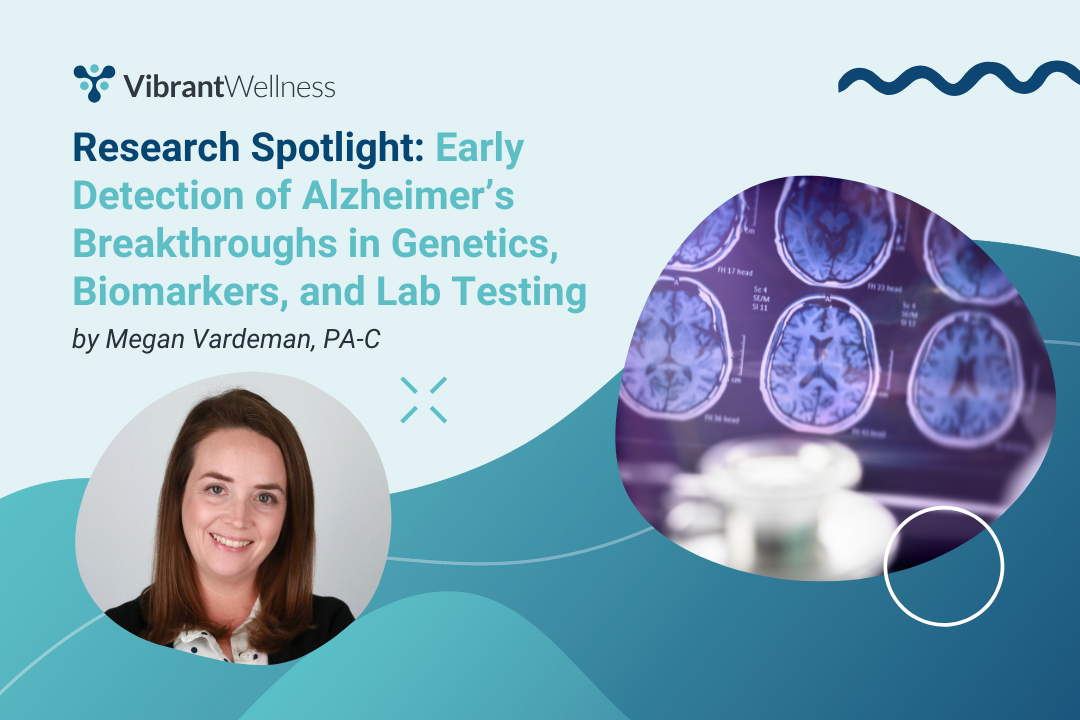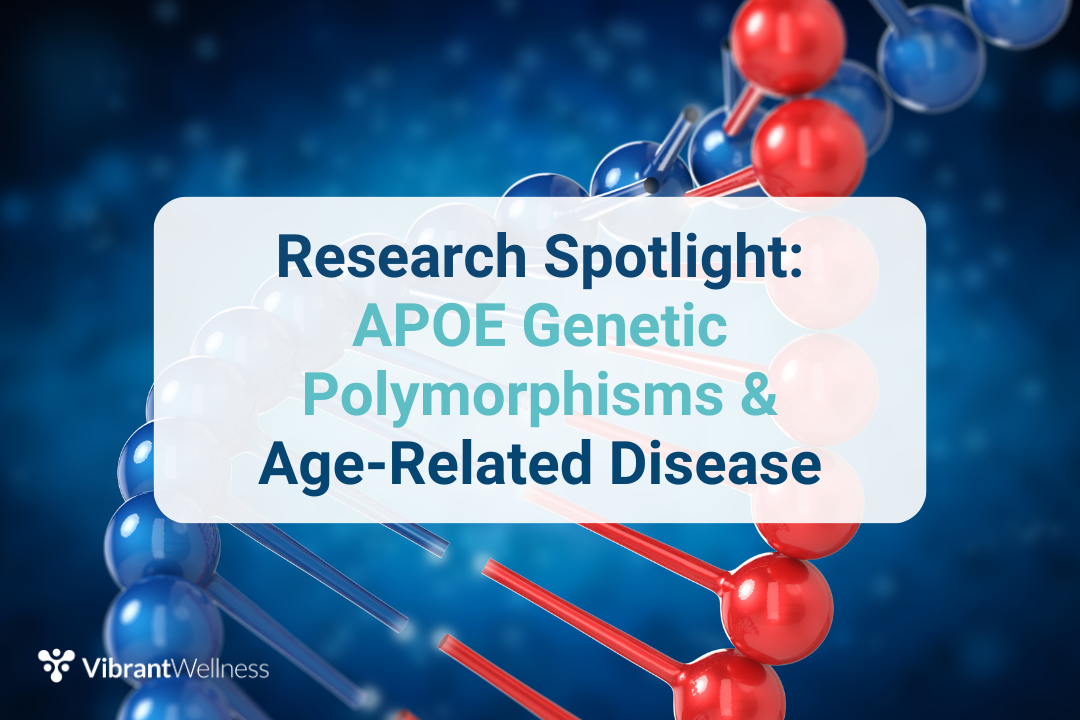Antibodies Linked to Alzheimer's Disease
The root causes of Alzheimer's disease and other related conditions remain a great mystery. Along with genetics, environmental and lifestyle factors seem to play a significant role.
A wide range of elements, from sleep deprivation to exposure to environmental toxins like heavy metals and industrial chemicals, have been linked to the development of Alzheimer’s Disease.
But is it possible to identify Alzheimer's before severe symptoms emerge?
In this blog, we'll explore antibodies that may be linked to neurodegenerative disease and discuss how precision lab testing can help in the battle against Alzheimer's and dementia.
Symptoms of Alzheimer’s Disease
Alzheimer’s Disease is a degenerative condition affecting the brain. The most common symptoms observed in affected individuals are:
- Memory loss
- Changes in ability to create and follow plans
- Difficulty accomplishing familiar tasks like household chores, cooking, driving to a frequent destination, or operating common household electronics
- Confusion about time or location
- Trouble with balance and spatial recognition, which may lead to increased incidence of falls, injuries, or clumsiness
- Problems finding spoken and written words
- Frequently losing or misplacing items
- Decreased ability to make informed decisions or judge outcomes or consequences
- Social withdrawal
- Personality or mood changes that are out of character
Benefits of Testing for Alzheimer’s Disease
While there is no definitive way to prevent Alzheimer's, early testing can help identify early stages or even the risk of developing the disease by testing antibodies that indicate an ongoing immune response associated with the disease.
Treating diseases like Alzheimer's early may be more effective in managing symptoms and potentially slowing disease progression.
Antibodies Linked to Alzheimer's Disease
Lab tests like the Neural Zoomer Plus can identify antibodies associated with Alzheimer's to enable early, targeted interventions.
The Neural Zoomer Plus is a landmark antibody test with 48 antibodies to various structures, cells, neurotransmitters, neuropeptides, cellular receptors, and more as a comprehensive screening tool for neurological health.
This advanced test includes 11 antibodies that have been specifically linked to Alzheimer’s Disease and dementia in clinical studies:
Anti-HSV1
HSV1, or Herpes Simplex Virus 1, is the virus that commonly causes cold sores. Some research suggests that this virus may also contribute to Alzheimer's disease when present in the brain.
Anti-NMDA
NMDA (N-methyl D-aspartate) receptors are a type of receptor in the brain that plays a role in memory and learning. Disruption or malfunction of these receptors has been implicated in several neurological diseases, including Alzheimer's.
Anti-Endothelin A receptor
Endothelin receptors are involved in blood vessel constriction. Brain blood flow problems could potentially contribute to Alzheimer's disease.
Anti-Alpha synuclein
Alpha-synuclein is a protein primarily found in the brain. Misfolding and buildup of this protein is a characteristic feature of Parkinson's disease, but it has also been implicated in other neurodegenerative diseases, including Alzheimer's disease.
Anti-Tau
Tau is a protein that helps stabilize the structure of neurons in the brain and plays a role in other processes, including myelination, neurogenesis, motor function, learning, and memory. In Alzheimer's disease, Tau can become abnormal and form tangles, leading to neuron damage and death.
Anti-Amyloid beta (1-42)
Amyloid beta (1-42) is a type of protein that can accumulate and form plaques in the brains of people with Alzheimer's disease. These plaques can disrupt the function of neurons and contribute to the progression of the disease.
Anti-a1 and B2 adrenergic receptors
A1 and B2 receptors are part of the sympathetic nervous system, or “flight or fight” system. They help regulate various physiological functions, including the central nervous system. Dysregulation of these receptors may have potential links with Alzheimer's disease.
Anti-RAGE peptide
RAGE is a receptor involved in inflammation and is believed to play a role in Alzheimer's disease by mediating beta-amyloid transport across the blood-brain barrier and promoting inflammation in the brain.
Anti-Amyloid Beta 25-35
Amyloid Beta 25-35 is a specific segment of the Amyloid beta protein, and like the full-length protein, its accumulation may contribute to the development of Alzheimer's disease.
Anti-Microglia
Microglia are a type of immune cell in the brain. While they normally help protect the brain, they can also contribute to inflammation and damage in neurodegenerative diseases like Alzheimer's.
Anti-s100B
S100B is a calcium-binding protein often released by astrocytes and can act as a marker of brain damage. Elevated levels of this protein have been observed in various neurological conditions, including Alzheimer's.
Looking Ahead with Integrative Approaches
Despite the challenges that Alzheimer's and related conditions present, there is a ray of hope.
Thanks to advancements in integrative treatments, patients can lead more manageable lives. Accurate precision lab testing is the first step to personalized treatment plans.
 By
By
.png?width=1080&height=500&name=2023-03%20-%20Understanding%20SIBO%20-%20Chart%20(3).png)




